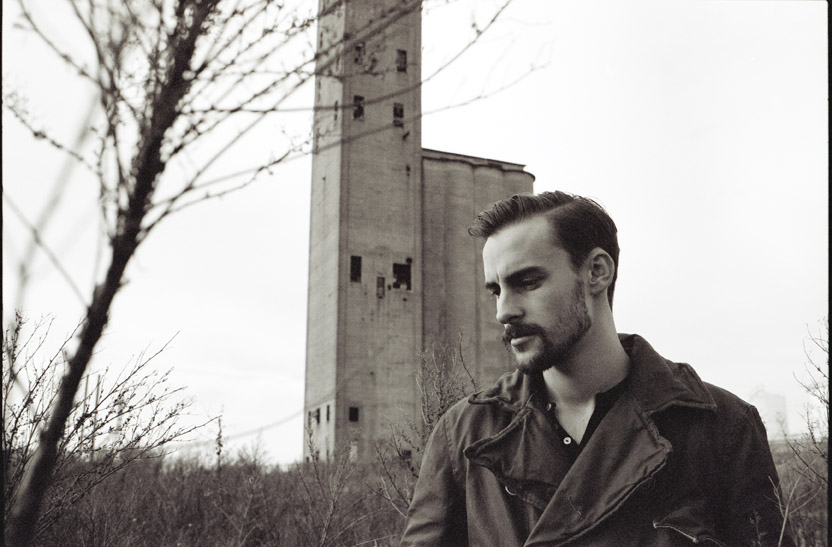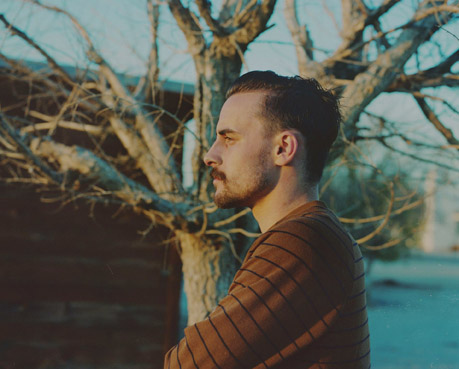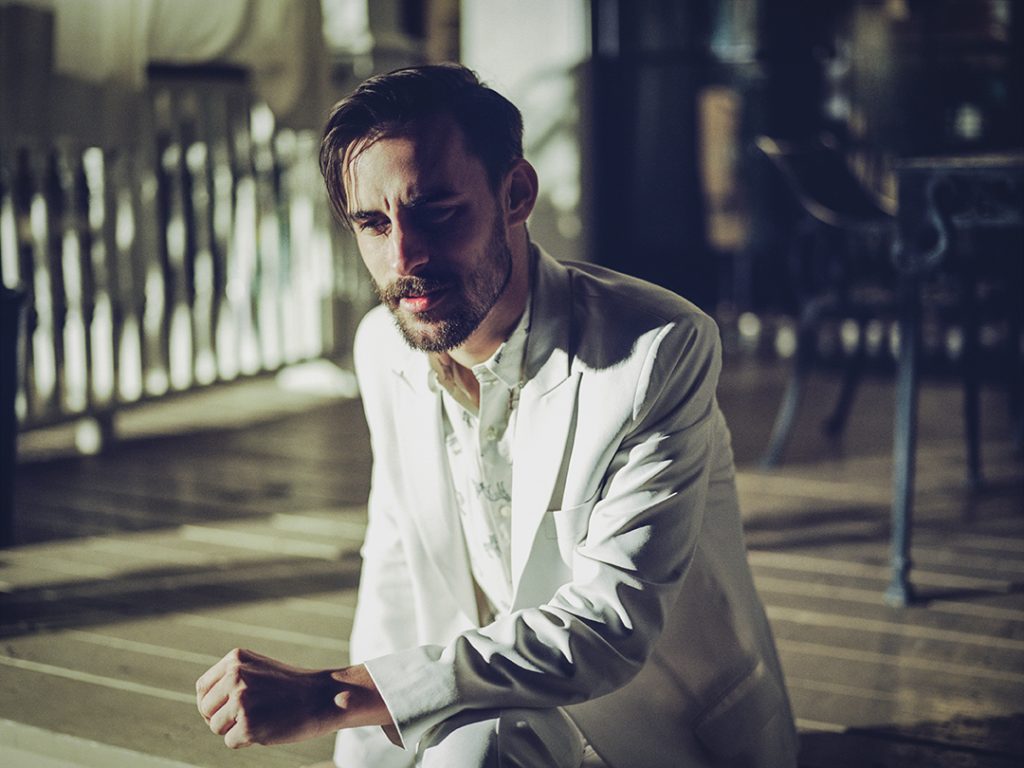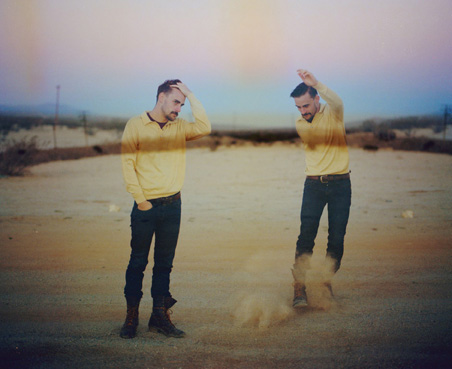
Singer/songwriter Robert Ellis is stopping in El Paso on Friday, July 15th at Tricky Falls to promote his recently-released, eponymous studio album. Ellis is a master of seamlessly blending jazz, country, and pop, and has transitioned from a mostly country music background to something entirely unique.
En route from Austin to Houston, Ellis took some time to talk to Fusion about his new record, the production process, and his of El Paso.
On “Robert Ellis”, are you telling stories through characters with parts of you sprinkled in, or is it all you?
It’s the former. I use characters a lot, and narratives. I’m not real sure why; it’s kind of what I’m interested in I guess. But there are pieces of me in all those stories. There’s just something more fun about making a narrative. Sort of like using imagination and not having to stick to the verbatim way that it [story] happens. I also never want to feel like I’m unloading personal shit on people, or whining (laughs). So stories are a really fun way to exercise that, and explore in’s and out’s of how I feel in sort of a removed way.
Do you still get a cathartic release from sublimating some of the emotions you go through personally?
Oh, so much. I think we kind of experience the world through stories, no matter what. Whether you’re a song writer or not, or whether you’re a writer. The way that you remember the past is you forget a whole lot of things, then you create a story around the events that happened. I think we kind of remember the world through stories that aren’t necessarily complete. I definitely think that’s how we make sense of the world. And then to be able to do that, you know on paper, and put something down and then look at it, it’s sort of a similar kind of therapy, figuring out in the stories how people respond, and how they feel, and what they’re responsible and accountable for. It’s like a mirror looking back at you.
Do you worry that as an artist, your creativity will ever plateau? It doesn’t seem so, because there will always be stories to tell, right?
Yeah. As long as I’m interested in life, I think there will always be. . . It’s just so confusing, so complex. I unfortunately am not one of those people who feel like I have it figured out, and I don’t know that I ever will. I don’t often find myself being like ‘A ha! I’ve got it!’ you know?
And even if you do, it’s really fleeting!
Totally! And if anything, it’s going to get more complicated. But as long as I stay interested, there’s always going to be stuff to write about.
On the song “California” it’s told through the woman’s perspective. Why did you choose to write it from her point of view?
It kind of just came out. Some stuff I do is [because] it just feels kind of right. When I’m writing I tend to trust my gut. I think the chorus words came out of my mouth, and at first it didn’t feel like it was me. . . like I wasn’t the one saying that. Then it felt better to say ‘And she says maybe I’ll move to California.’ Once I had that, the whole rest of the song fell into place. Also I think in a divorce, or in a relationship the tendency we have is to only really think about our side of things, and we just think ‘Oh, she fucked me over,’ or ‘He cheated on me,’ or whatever. But I’ve found it very healthy to try to. . .sort of argue the point of whoever you’re arguing against. Something about doing that makes you understand in a deeper way, and it also allows the other person to know that you actually are hearing them.
Gives them validation.
Yeah. So there’s something about that in songs too. It just feels really healthy to think about what somebody else might be going through. And of course you put yourself into it too—there’s no way not to.
I read you wrote the songs on the record in various places while on tour.
Yeah a lot of it. I’ve been on the road a lot, for many years now, so it just became a necessity. But because of that, it’s really cool because the places I’m in, they give you a different color scheme and palette to write with. The song “Perfect Strangers” is all very New York City-feeling. I think it’s weird, the stuff that sneaks in harmonically. I think the song “Drivin’” is very much about Nashville, and the music itself leans heavier on the country side of things than any other song on the record. And that wasn’t conscious really, it just kind of happened.
Like you absorbed the energy from each place?
Totally. If you’re writing about places in Nashville, there’s this certain feeling that comes with saying the names of them, or imagining them. A great example is Marty Robbins music about El Paso. That stuff sounds so El Paso, regardless of the words. It’s really interesting. . . so when I go to El Paso, there are a few things I do: I always go to L & J’s and I eat a lot of food; I always listen to Marty Robbins; and I’ve got a friend from there, who’s actually flying in just for the show. Occasionally, he’s my tour manager, and we’ve been friends for a really long time. His name’s Justin Soto and his parents live in El Paso, so we always hang out with them. His dad’s actually the one who turned me onto L & J. So we always go there, and then go walk around that cemetery [Concordia]. It’s really cool.

So you get the real El Paso experience then, because you’re hanging out with natives?
of romantic ideas that at some point getting a house out in the desert, three hours east of El Paso or something. There’s just something about the landscape and the people that’s very different from anywhere in the world. It’s one of my favorite cities. It’s so fun, and it just looks and feels like nowhere else.
How many times have you visited El Paso?
I’ve probably visited five or six times. But I’ve only played there once, a very long time ago. It’s weird because for some reason it just doesn’t show up on the tour. I called my booking agent and was like ‘Hey, let’s just figure out something for El Paso.’ This was less than a month ago. So he came back with the Bowie Feathers thing. I was just like ‘I don’t care what it is, even if it’s just a house show or something. I really want to play something there.’
Nice! During any of your visits, have you ever written a song while you’ve been down here?
Yeah. There were a few that I worked on that never quite got finished, and there’s one that I still go back to and sort of revise and work on, and maybe it’ll see the light of day.
That being said, I’m always fascinated when I think about the songwriters out there who probably have volumes of work just kind of hanging out on the shelf. Are you one of those artists?
I’ll say that the stuff that doesn’t make it on the record, usually to me, it doesn’t make the cut. So, I’ve got a lot of material that nobody’s heard, but I wouldn’t go so far as to say that’s it’s good or it’s finished. I tend to have a really low rate of success as a song writer, you know. I write a whole lot, and a very small amount of it is good to me.
Among the song writers and musicians I’ve interviewed, I feel like that’s a mainstay—you all are your own hardest critics.
I think that is true in one way, but this whole culture of criticism of art is really weird and I think kind of toxic. I’m of the mind if you don’t have anything nice to say, then don’t say anything at all. It’s wildly confusing to me that someone would write something to say that it’s bad, you know. You have this amazing opportunity as a journalist, or really just as a person in the world now with the Internet. You have this opportunity to share things that are good about the world, to spread joy to the people around you; it’s weird to me that people would use it to create negativity. I guess that’s just a symptom of who we are. I don’t really want to get caught up in this feedback loop of thinking ‘Oh people really like that last record; I should make another one like that.’ I’d much rather just put it out there and say ‘It is what it is,’ and hopefully when I sit down to write again, I don’t have that voice in my head, good or bad.

Did you feel a huge sense of relief after completing “Robert Ellis”?
Yeah, for many, many reasons. This is definitely my sort of like coming out, in a production way, on this record. There was a lot of stuff that I was trying to fight for years. I put out the record “Photographs” which had a lot of very country elements on it. I was very young and it was my first record on a major independent label. It came out and it was really well received, but I found myself saying ‘Hang on; I’m not that guy.’ I think we’re all pretty complex, and I think it’s unfair when somebody creates a body of work like an album, and [somebody decides] that represents them, not only at that time, but as a person. People think ‘Robert Ellis, that country guy,’ and it reduces you to this really one-dimensional thing. With [album] “The Lights from the Chemical Plant” I was kind of like ‘Okay, I’m also this.’ It felt sort of responsive, at least personally–like I was responding to “Photographs.” But I think this record is arguably way weirder than “Chemical Plant” in some ways. But it didn’t feel weird; it didn’t feel responsive. It just kind of felt like ‘Okay this is who I am, and I’m going to put this out there.’ There was something so easy about it. I didn’t feel like I had anything to prove. It just felt like this is a little picture of me right now.
On the new record there’s some jazz and Bossa Nova elements, and you employ some synth and keys—things you really hadn’t done before. Were you absorbing different elements during that time, or were those elements just always simmering on the back burner?
It’s kind of all of that. If somebody said ‘What kind of music do you listen to,’ it would be a very hard question to answer. It ranges all over genres and countries. There’s just so much music out there, and it’s all so good. I think all of that stuff is in there if you let it, but I think sometimes you feel this sense of responsibility to a genre, to do it authentically or something. For instance, when somebody learns to play the steel guitar, part of learning that instrument is to go through the history of it and everything ever played on it. That’s a very decidedly “country” instrument. But it doesn’t necessarily mean that that instrument can only play country music.
Yeah, we even hear the steel guitar in Hawaiian music.
Totally, but I think that’s lost on some people. So, I’ve always just liked music and been fascinated with all kinds of music. I think this record was much more a reflection of that, sort of precipitated. Like I said, it just felt easy, and none of those elements felt forced. We were in the studio and we had all this stuff at our disposal. It was just like ‘Oh cool! Let’s try this sound.’ It felt very natural.
Why did you choose to self-produce this record?
For a lot of different reasons. Making a record involves a lot of problem solving financially and time-wise, especially now that nobody sells records and the amount of money that’s made in music is very small. I think people take for granted that when a lot of our favorite albums were made, even if they appear to be very D.I.Y. now, let’s say Neil Young or Paul Simon, we’re still talking a million dollar budget. They weren’t made in your friend’s garage. I think people think now that everyone is able to record off their computer, and that recording’s become more accessible, that means you can achieve the same quality. I don’t necessarily believe that. I think if somebody has good taste, the tools are there to get a lot more out of a small amount of money, but it’s still a balancing act.

There are just some things you can’t cheap out on. For instance the things involved with having a real string arrangement. . .luckily I’m in a place where I can do arranging myself and I hired two friends and we did all the arranging together. Normally I would’ve had to pay an arranger, for studio time, and all of the players who, if they’re good players, are going to expect a union rate to record. Choosing to produce in Houston allowed me to take the budget and figure out what was most important. I loved working with Jacquire King on “Chemical Plant,” but it just created some financial constraints I didn’t want to have to deal with on this record. On that record he really made money go a long way. But we also made it in Nashville which meant we had to bring all the guys out there. Being in Houston allowed us all to go home at night, eat at home, and all those things that just add up. At Sugar Hill, the studio we recorded at, I’ve been working there forever, so people were just cutting me deals left and right. That place has a really rich history—a lot of great music was recorded there. Everything from Freddie Fender to the Sir Douglas quintet; all this great Texas music made in this building. There’s definitely a spirit to it.
Can you talk about working with Kelly Doyle?
I love Kelly. He’s insane; he’s so good and he’s one of my best friends. We’ve grown together in a way with music. All of us in the band have been playing together for probably ten years now. We all have very similar weird sensibilities, and we all share music with one another constantly. We all play jazz and Eastern European music together. Me and Will [Van Horn], the steel player, used to both play in a Tejano band together when I first moved to Houston. We’ve all really had a unique experience in Houston, so our musical language is very weird, diverse, and unique to us. It’s hard to find people who like to listen to free jazz, but also love country music.
Who are the other guys in the band?
Geoffrey Muller plays bass. I used to play mandolin and drums in his band. It was very Eastern European-influenced, you know like weird Serbian dance tunes. Our drummer, “Tank” [Michael Lisenbe] he’s been with us the shortest amount of time. He started playing with us a little over a year ago.
- Robert Ellis
- Friday, July 15, 8 PM
- Tricky Falls, 209 S El Paso
- Tickets: $8
Text: Denise Nelson Prieto | Photos courtesy of Robert Ellis

